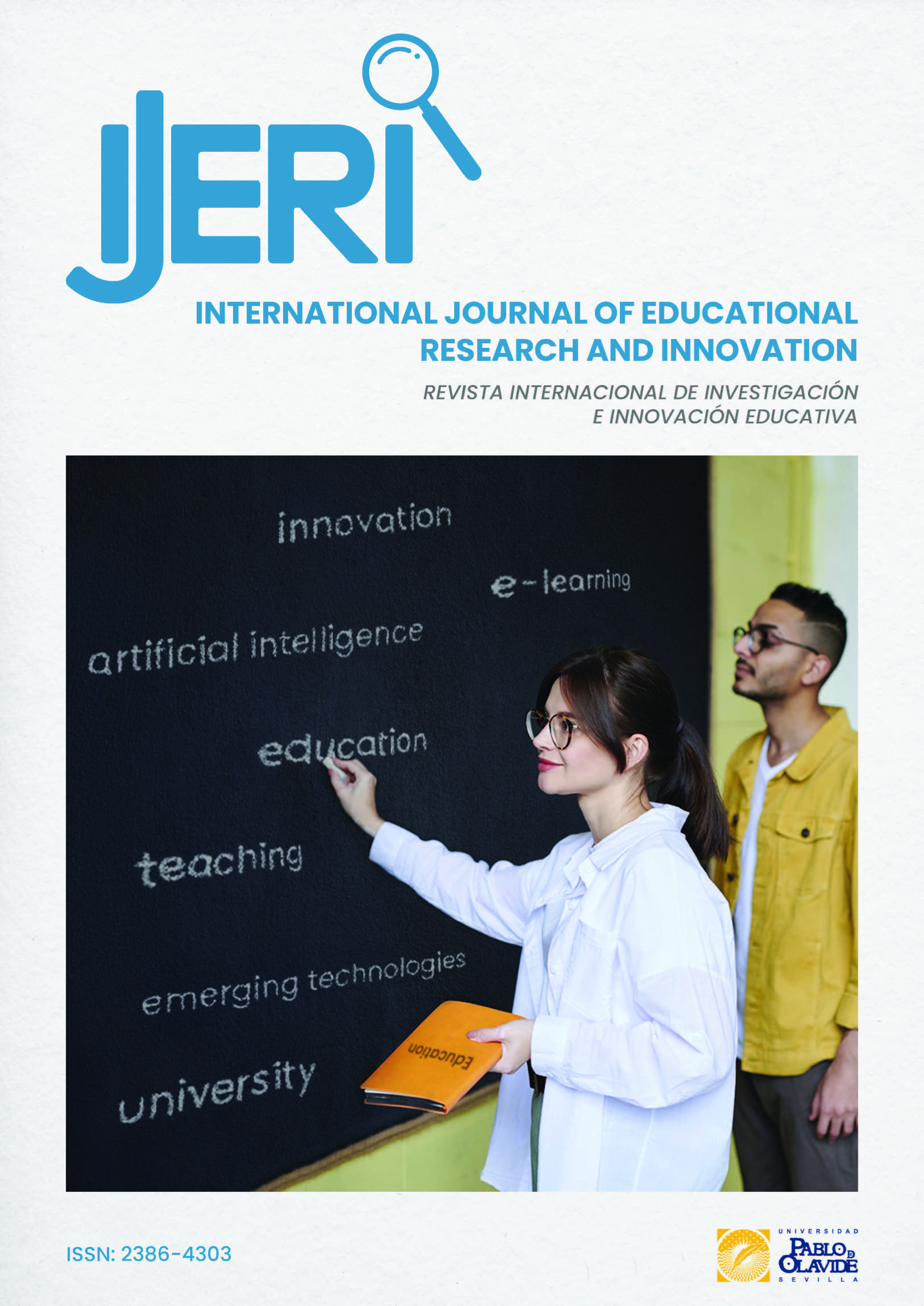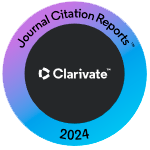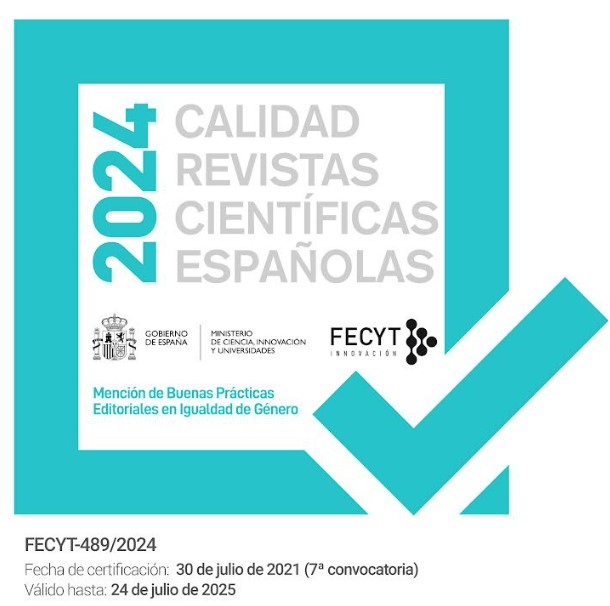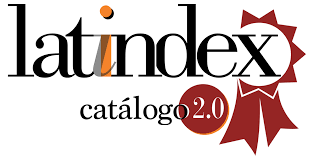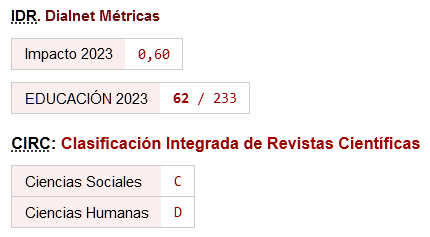Generative Artificial Intelligence and (post)digital teacher identity
DOI:
https://doi.org/10.46661/ijeri.11160Keywords:
Digital identity, generative artificial intelligence, smart technologies, postdigital, teachers, critical media literacyAbstract
This study explores teachers' attitudes and perceptions regarding their (post)digital identity in relation to Generative Artificial Intelligence (GenAI) and Smart Technologies (ST). A non-experimental design with a mixed approach was used, including a questionnaire, focus groups and an in-depth interview. The sample consisted of 177 teachers, mainly from Spain and the United States and included all educational levels. The results show a high degree of reliability of the instrument used (α = 0.847) and a significant (p < 0.01) strong positive correlation (r = 0.525) between the level of knowledge and experience with ST and teachers' attitudes and perceptions towards these tools. Although teachers hold a mostly positive attitude towards these technologies, more than 50% consider their knowledge and experience to be limited. Teachers' perceptions oscillate between caution and optimism regarding ST´s practical impact, emphasizing the need for individual, social and methodological changes to facilitate effective educational innovation. The analysis suggests that media education is key to overcoming barriers that hinder the adoption of these tools. The research concludes that, for teachers to embrace their postdigital identity, it is essential to reflect on how to integrate these technologies in a critical, inclusive, and ethical manner, thereby strengthening their role in fostering a more just society and adapting to new technological paradigms.
Downloads
References
Abbas, M., Jam, F. A., & Khan, T. I. (2024). Is it harmful or helpful? Examining the causes and consequences of generative AI usage among university students. International Journal of Educational Technology in Higher Education, 21(1), 10. https://doi.org/10.1186/s41239-024-00444-7
Adhikary, A., Halder, S., Bose, R., Panja, S., Halder, S., Pratihar, J., & Dey, A. (2024). Design and Implementation of an IOT-based Smart Home Automation System in Real World Scenario. EAI Endorsed Transactions on Internet of Things, 10. https://doi.org/10.4108/eetiot.6201
Alalwany, E., & Mahgoub, I. (2024). Security and Trust Management in the Internet of Vehicles (IoV): Challenges and Machine Learning Solutions. Sensors, 24(2), 368. https://doi.org/10.3390/s24020368
Almazán-López, O., & Osuna-Acedo, S. (2023). Identidad Transmediática en la Escuela: Alfabetización Mediática e Informacional Crítica en la Era Postdigital. En S. Osuna-Acedo y R. Feltrero (Coord.), Alfabetización mediática crítica: Desafíos para el siglo XXI (pp. 410-428). Aula Magna. https://doi.org/10.14198/MEDCOM.25005
Almazán-López, O., & Osuna-Acedo, S. 3 (2024). Entre la innovación y la ética: Impacto de la IAG y los chatbots conversacionales en la identidad digital en educación. En P. Arranz Martínez, M.A. Soláns García, Roberto Feltrero y L. M. Fernández Martínez (Coord.), Educomunicación y transformación social (pp. 48-80). Dykinson S.L.
Al-Taai, S. H. H., Kanber, H. A., & al-Dulaimi, W. A. M. (2023). The Importance of Using the Internet of Things in Education. International Journal of Emerging Technologies in Learning (iJET), 18(01), 19-39. https://doi.org/10.3991/ijet.v18i01.35999
Álvarez-Herrero, J.-F. (2024). Opinion of Spanish Teachers About Artificial Intelligence and Its Use in Education. En S. Papadakis (Ed.), IoT, AI, and ICT for Educational Applications: Technologies to Enable Education for All (pp. 163-172). Springer Nature Switzerland. https://doi.org/10.1007/978-3-031-50139-5_8
Arantes, J. (2024). Postdigital Teacher Identities. En P. Jandrić (Ed.), Encyclopedia of Postdigital Science and Education (pp. 1-7). Springer Nature Switzerland. https://doi.org/10.1007/978-3-031-35469-4_77-1
Business Wire. (2024, February 14). Infobip’s Survey Reveals Americans Are Getting Personal with Chatbots. https://bwnews.pr/486Lo9z
Caltrider, J., Rykov, M., & McDonald, Z. (2024, April 3). Las aplicaciones de citas ávidas de datos son cada vez peores para tu privacidad. Mozilla Foundation. https://foundation.mozilla.org/es/privacynotincluded/articles/data-hungry-dating-apps-are-worse-than-ever-for-your-privacy/
Chen, C. y Shu, K. (2023). Combating Misinformation in the Age of LLMs: Opportunities and Challenges. arXiv. https://doi.org/10.48550/arXiv.2311.05656
Chen, L., Chen, P., & Lin, Z. (2020). Artificial Intelligence in Education: A Review. IEEE Access, 8, 75264-75278. IEEE Access. https://doi.org/10.1109/ACCESS.2020.2988510
Chen, X., Zou, D., Xie, H., & Wang, F. L. (2021). Past, present, and future of smart learning: A topic-based bibliometric analysis. International Journal of Educational Technology in Higher Education, 18(1), 2. https://doi.org/10.1186/s41239-020-00239-6
Cheng, C.-Y., Pourhejazy, P., Hung, C.-Y., & Yuangyai, C. (2021). Smart Monitoring of Manufacturing Systems for Automated Decision-Making: A Multi-Method Framework. Sensors, 21(20), 6860. https://doi.org/10.3390/s21206860
Cheung, S. K. S., Kwok, L. F., Phusavat, K., & Yang, H. H. (2021). Shaping the future learning environments with smart elements: Challenges and opportunities. International Journal of Educational Technology in Higher Education, 18(1), 16. https://doi.org/10.1186/s41239-021-00254-1
Chiu, T. K. F., Xia, Q., Zhou, X., Chai, C. S., & Cheng, M. (2023). Systematic literature review on opportunities, challenges, and future research recommendations of artificial intelligence in education. Computers and Education: Artificial Intelligence, 4, 100118. https://doi.org/10.1016/j.caeai.2022.100118
Duan, Q., Xiao, M., & Bai, Y. (2023). A Review of International Research on Artificial Intelligence in Teachers’ Teaching. 2023 IEEE 12th International Conference on Educational and Information Technology (ICEIT), 167-172. https://doi.org/10.1109/ICEIT57125.2023.10107869
Fernández, D. M. (2023). La formación como principio y fin de la acción preventiva frente a los riesgos psicosociales derivados de la digitalización y la automatización. Lan Harremanak - Revista de Relaciones Laborales, 49, 115-154. https://doi.org/10.1387/lan-harremanak.24829
Galicia Alarcón, L. A., Balderrama Trápaga, J. A., & Edel Navarro, R. (2017). Content validity by experts’ judgment: Proposal for a virtual tool. Apertura, 9(2), 42-53. https://doi.org/10.32870/Ap.v9n2.993
Galindo-Domínguez, H., Delgado, N., Campo, L., & Losada, D. (2024). Relationship between teachers’ digital competence and attitudes towards artificial intelligence in education. International Journal of Educational Research, 126, 102381. https://doi.org/10.1016/j.ijer.2024.102381
Gillani, N., Eynon, R., Chiabaut, C., & Finkel, K. (2023). Unpacking the “Black Box” of AI in Education. Educational Technology & Society, 26(1), 99-111. https://doi.org/10.30191/ETS.202301_26(1).0008
Liz Gutiérrez, A. M. (2020). ¿Un mundo nuevo? Realidad virtual, realidad aumentada, inteligencia artificial, humanidad mejorada, Internet de las cosas. Arbor, 196(797), a572. https://doi.org/10.3989/arbor.2020.797n3009
Ha, C., & Lee, S.-Y. (2019). Elementary teachers’ beliefs and perspectives related to smart learning in South Korea. Smart Learning Environments, 6(1), 3. https://doi.org/10.1186/s40561-019-0082-5
Habib, S., Vogel, T., Anli, X., & Thorne, E. (2024). How does generative artificial intelligence impact student creativity? Journal of Creativity, 34(1), 100072. https://doi.org/10.1016/j.yjoc.2023.100072
Hadi Mogavi, R., Deng, C., Juho Kim, J., Zhou, P., D. Kwon, Y., Hosny Saleh Metwally, A., Tlili, A., Bassanelli, S., Bucchiarone, A., Gujar, S., Nacke, L. E., & Hui, P. (2024). ChatGPT in education: A blessing or a curse? A qualitative study exploring early adopters’ utilization and perceptions. Computers in Human Behavior: Artificial Humans, 2(1), 100027. https://doi.org/10.1016/j.chbah.2023.100027
Huerta, R., & Domínguez, R. (2023). Inteligencia Artificial. Sinergias entre humanos y algoritmos creativos. Educación artística: revista de investigación, 14, 9-25. https://doi.org/10.7203/eari.14.27945
Hwang, G.-J., Xie, H., Wah, B. W., & Gašević, D. (2020). Vision, challenges, roles and research issues of Artificial Intelligence in Education. Computers and Education: Artificial Intelligence, 1, 100001. https://doi.org/10.1016/j.caeai.2020.100001
Jandrić, P., Escaño, C., & Mañero, J. (2023). Pedagogía crítica postdigital y justicia social bioinformacional. Profesorado, Revista de Currículum y Formación del Profesorado, 27(1), 61-80. https://doi.org/10.30827/profesorado.v27i1.24645
Katshuna, H. M., & Shikalepo, E. E. (2023). Unpacking Teachers’ Roles in the implementation of New School Curriculum. International Journal of Social Science and Human Research, 6(10). 6430-6433. https://doi.org/10.47191/ijsshr/v6-i10-83
Khan, A., Zeb, I., Zhang, Y., & Tahir. (2023). Impact of emerging technologies on cognitive development: The mediating role of digital social support among higher education students. IJERI: International Journal of Educational Research and Innovation, 20, 1-15. https://doi.org/10.46661/ijeri.8362
López-Rey, D. M. (2024). Pedagogía posdigital como síntesis del aprendizaje rizomático y la era posdigital. Sophía, 36, 113-142. https://doi.org/10.17163/soph.n36.2024.03
Miao, F., & Cukurova, M. (2024). AI competency framework for teachers. UNESCO Digital Library. https://unesdoc.unesco.org/ark:/48223/pf0000391104
Miao, F., & Holmes, W. (2024). Guía para el uso de IA generativa en educación e investigación. UNESCO Biblioteca Digital. https://unesdoc.unesco.org/ark:/48223/pf0000389227
Miao, Y., & Yao, Y. (2021). Professional Development of College Teachers in the Era of Artificial Intelligence: Role Rebuilding and Development Path. In V. Sugumaran, Z. Xu y H. Zhou (Eds.), Application of Intelligent Systems in Multi-modal Information Analytics (pp. 618-626). Springer International Publishing. https://doi.org/10.1007/978-3-030-51431-0_89
Microsoft. (2024a). AI at Work Is Here. Now Comes the Hard Part. Microsoft. https://bit.ly/3Yk8aHL
Microsoft. (2024b). Digital Safety | Global Online Safety Survey Results. https://bit.ly/3Yki5NF
Mohammed, B. G., & Hasan, D. S. (2023). Smart Healthcare Monitoring System Using IoT. International Journal of Interactive Mobile Technologies (iJIM), 17(01), 141-152. https://doi.org/10.3991/ijim.v17i01.34675
Mollick, E. R., & Mollick, L. (2023). Using AI to Implement Effective Teaching Strategies in Classrooms: Five Strategies, Including Prompts. SSRN Electronic Journal. https://doi.org/10.2139/ssrn.4391243
Nemorin, S., Vlachidis, A., Ayerakwa, H. M., & Andriotis, P. (2023). AI hyped? A horizon scan of discourse on artificial intelligence in education (AIED) and development. Learning, Media and Technology, 48(1), 38-51. https://doi.org/10.1080/17439884.2022.2095568
Nsoh, A. M., Joseph, T., & Adablanu, S. (2023). Artificial Intelligence in Education: Trends, Opportunities and Pitfalls for Institutes of Higher Education in Ghana. International Journal of Computer Science and Mobile Computing. International Journal of Computer Science and Mobile Computing, 12(2), 38-69. https://doi.org/10.47760/ijcsmc.2023.v12i02.004
Peñalvo, F. J. G., Alier, M., Pereira, J., & Casany, M. J. (2024). Safe, Transparent, and Ethi-cal Artificial Intelligence: Keys to Quality Sustainable Education (SDG4). IJERI: Interna-tional Journal of Educational Research and Innovation, 22, Article 22. https://doi.org/10.46661/ijeri.11036
Rivera-Vargas, P., Raffaghelli, J., & Miño-Puigcercós, R. (2024). Plataformas digitales comerciales en la educación pública. Desafíos emergentes sobre privacidad y protección de datos. Edutec. Revista Electrónica de Tecnología Educativa, 87, 28-42. https://doi.org/10.21556/edutec.2024.87.3063
Sánchez-Vera, M. D. M. (2023). La inteligencia artificial como recurso docente: Usos y posibilidades para el profesorado. EDUCAR, 60(1), 33-47. https://doi.org/10.5565/rev/educar.1810
Silverio-Fernández, M., Renukappa, S., & Suresh, S. (2018). What is a smart device? - A conceptualisation within the paradigm of the internet of things. Visualization in Engineering, 6(1), 3. https://doi.org/10.1186/s40327-018-0063-8
The Adecco Group. (2024, February). Global Workforce of the Future 2023. The Adecco Group. https://bit.ly/4dkKCHj
UNESCO IITE, COL, & BNU. (2022). Smart Education Strategies for Teaching and Learning: Critical analytical framework and case studies. UNESCO IITE. https://bit.ly/47J05zG
Wei, J., Huang, D., Lu, Y., Zhou, D., & Le, Q. V. (2024). Simple synthetic data reduces sycophancy in large language models. arXiv. https://doi.org/10.48550/arXiv.2308.03958
Xie, G., Pu, D., Wang, M., & Liu, Y. (2023). A Visual Analysis of the Application of Internet of Things Technology in Education Based on Citespace and Vosviewer. In Proceedings of the 2023 4th International Conference on Artificial Intelligence and Education (ICAIE 2023) (pp. 582-590). https://doi.org/10.2991/978-94-6463-242-2_71
Xue, Y., & Zhou, J. (2021). The Social Role of Elementary School Teachers in the Era of Artificial Intelligence: Challenges and Responses. International Journal of Frontiers in Sociology, 3(18), 129-134. https://doi.org/10.25236/IJFS.2021.031819
Yap, C. K., & Al-Mutairi, K. A. (2024). A Conceptual Model Relationship between Industry 4.0—Food-Agriculture Nexus and Agroecosystem: A Literature Review and Knowledge Gaps. Foods, 13(1), 150. https://doi.org/10.3390/foods13010150
Zhang, D., Nie, Z., & Ye, F. (2023). Design and Verification of Online Dialogue Promoting Deep Learning Supported by Intelligent Technology. 2023 IEEE International Conference on Unmanned Systems (ICUS), 1304-1309. https://doi.org/10.1109/ICUS58632.2023.10318315
Published
How to Cite
Issue
Section
License
Copyright (c) 2025 Oskar Almazán-López, Helen Hasbún, Sara Osuna-Acedo

This work is licensed under a Creative Commons Attribution-NonCommercial-NoDerivatives 4.0 International License.

